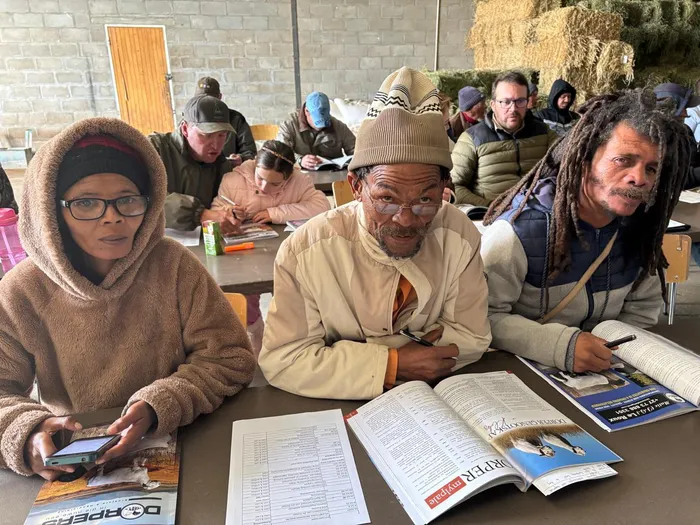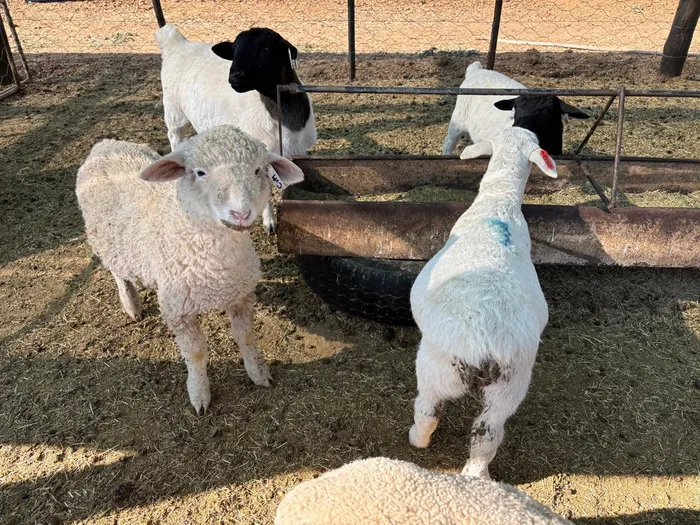Empowering female farmers in Loeriesfontein for sustainable agriculture

Through the training, participants were equipped with essential knowledge on Dorper sheep breed standards, effective breeding methods, animal health care, and current market trends.
Image: Supplied / TM Communications
Emerging female farmers are redefining the future of agriculture, thanks to a transformative week-long Dorper Sheep Training course held in Williston.
This initiative unfolded through a collaboration between the Department of Agriculture, Land Reform and Rural Development, alongside the Loeriesfontein and Khobab Wind Farms, all aimed at bolstering the farming practices of local subsistence farmers while fostering long-term resilience in the community.
Among the participants is Feuke Mostert, who expressed profound enthusiasm for the training, which has equipped her and her colleagues with essential knowledge about the Dorper sheep breed standards, effective breeding methods, animal health care, and insight into current market trends.
The course not only slotted in theoretical knowledge but also embraced practical, hands-on sessions. These sessions introduced modern techniques vital for improving livestock quality and reducing disease risks.

Dorper sheep.
Image: Supplied / TM Communications
“The training taught me how to evaluate a Dorper sheep by looking at its key characteristics, from conformation and head structure to midsection and pigmentation, all in line with the breed standard,” Feuke shared. “I now feel confident in making informed decisions when buying a ram or ewe at an auction.” This newfound confidence allows her to step into the marketplace with assuredness, a crucial asset for any farmer.
Beyond mere technical knowledge, the programme has ignited a flame of ambition within Feuke. “Being selected for this programme was such a privilege. My dream is to one day become the first female farmer in my community to proudly farm with Dorpers,” she said, illustrating the programme's profound impact on personal aspirations as well as professional capabilities.
Such training falls under a broader strategy designed to empower farmers with vital tools and knowledge that enhance productivity, improve livestock quality, and ultimately increase profitability.
With the wind farms covering the full cost of the training, meals, and accommodation, and the Department of Agriculture providing transport, the initiative demonstrates a strong investment in rural economic growth.
As Vanessa Fredericks, Economic Development Manager for Loeriesfontein and Khobab Wind Farms, noted, “This support represents an investment in rural economic growth and long-term community upliftment.
By funding accessible, income-generating agricultural training, we’re helping to build a more resilient local economy where agriculture is vital.”